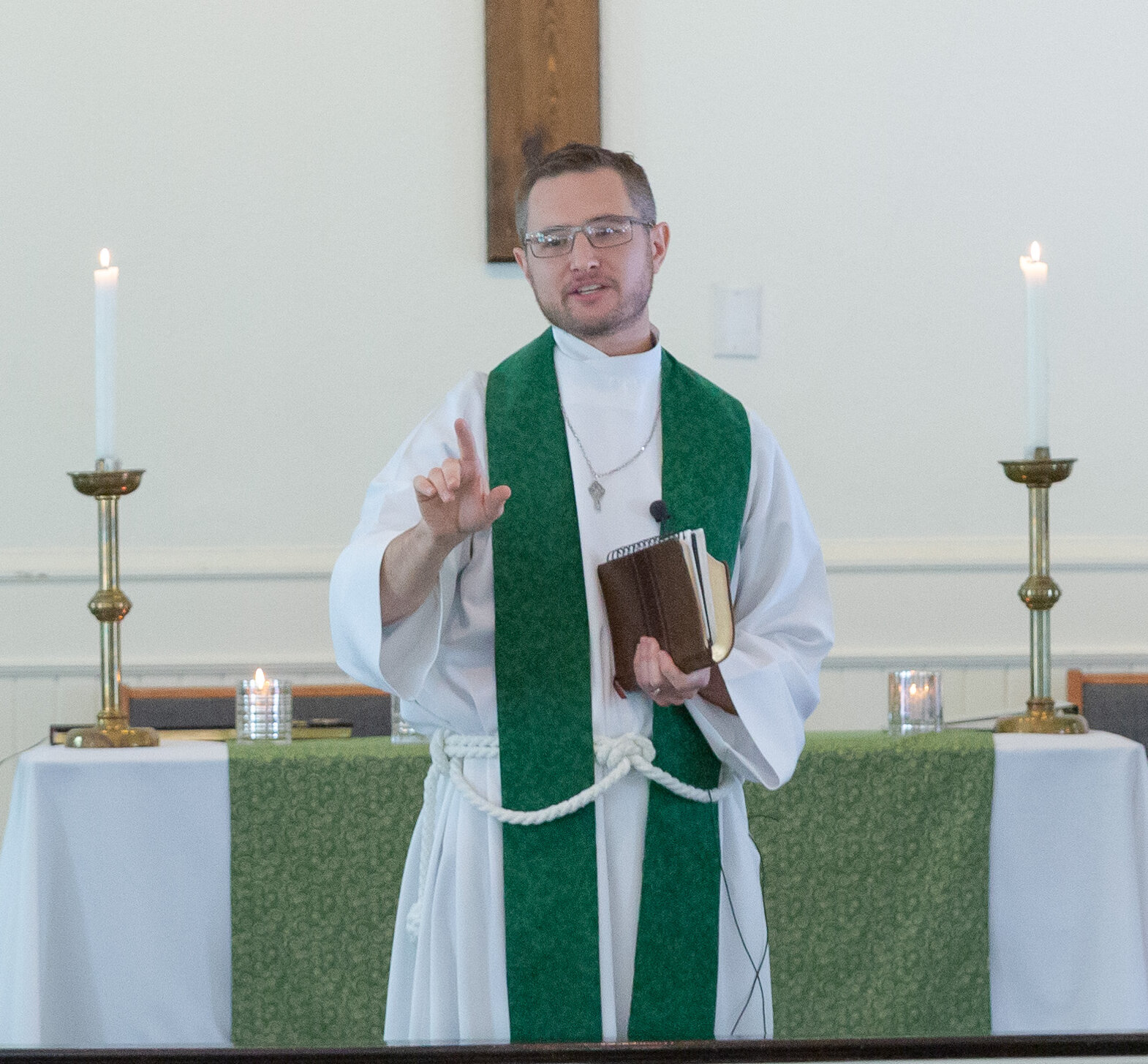Fr. Bryan Wandel, Fall 2007 John Jay alumnus, preaching at his church in New York.
From DC to a City Pulpit
Few might pair a Pentecostal upbringing with the journey of a typical John Jay Institute scholar, and even fewer would connect that biographical fact to a future in the Anglican priesthood. But for Father Bryan Wandel, his inter-denominational journey was essential to understanding true Christian leadership.
Born and raised in Buffalo, Wandel graduated from the John Jay Institute in 2007—the inaugural class after the name change from Witherspoon. He’d move to Washington, DC and serve on Capitol Hill for 9 years before answering a call to pastoral ministry and returning to Western New York. His time in government was formative to his future vocation.
What is Principled Leadership?
When it comes to principled leadership, he argues, the view that America’s centers of government are temples to the raw pursuit of power isn’t quite accurate. Most combatants are motivated to do good, but not necessarily rightly oriented in their approach to achieving those ends. Principled leadership is deeper than views of morality or even charging into battle on behalf of convictions. Most of his contemporaries in politics believed in their cause, even as the contest for those ideas divided and polarized. “Being principled, I think, has to do with how they go about that task,” he says. It involves both the motivation and the method of working for change. Is the motive to “check boxes on an agenda” or is it to actually improve the lives of citizens? The answer lies in magnanimity—the ability to stretch beyond yourself and beyond the here-and-now. “That’s what’s so difficult,” he says of the challenge. Our call is an exercise in “stretching ourselves beyond the debate that happens today and is gone tomorrow.”
But if magnanimity defines humble, principled leadership, it’s a value that Wandel sees as lacking in the public witness of many American churches. The answer he argues is a revolution in grace-filled action. “We need people to step up, which is not common in this generation,” and step out of the comforts of the Christian subculture. The Presbyterian churchman, John Witherspoon had it right when challenging Christians to be humble in the pursuit of great things.
How Did Spiritual Rhythms Transform His Politics?
As to the impact of the John Jay Institute in shaping his view of life, calling, and leadership, Wandel cites the program’s holistic approach— the cycle of daily reading, community, and prayer that shapes his personal worship to this day. Prayers of confession inside the walls of true community bonds as grace is granted alongside fellow Christ followers. John Jay also aided him in developing a balanced perspective of values. He left with a refined understanding of conservative ideals but freed from needing to see them expressed in a political party or platform. He could engage ideas liberated from political stances. “John Jay is a really great introduction to deep Christian thinking that involves some thinkers you might not have heard of at this time.”
The lessons learned at John Jay have continued to shape Wendel’s understanding of vocation in daily life. As the pastor of a growing city church plant, his range of experiences spanning the casual to the liturgical are allowing him to reach a community that is reported to be one of the nation’s most secular. His calling as a pastor runs deep but it’s his core mission at home—loving his wife and their four children that is the essential thing.
As to the future of Christian leadership, he has one summarizing thought: “Principled leadership doesn’t come from leaders who become principled, it comes from principled people who become leaders.”
Back to the Leading Together Homepage
Read the Life Together series | Read the Learning Together Series


